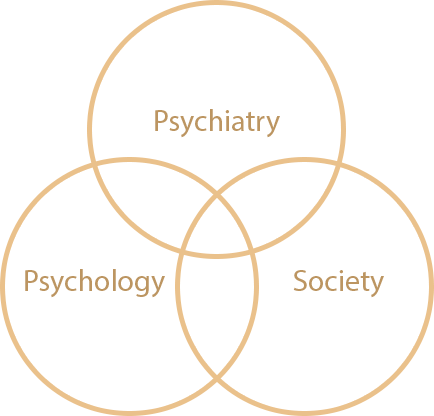"Mental Health is a state of well-being in which every individual realizes his or her own potential, can cope with the normal stress of life, can work productively and is able to make a contribution to her or his community"
- World Health Organization
Mental health can never be understood in silos of a psychiatric ward or a therapy room. Instead,
it is the familial and the community ties that make a difference. At Mind Piper we bridge this gap
of individual mental health and a community.

A connected and engaged approach that brings together psychiatry, psychology and the societal components of care to aid the journey of treatment recovery and growth.
With the vision of providing sustainable counselling and psychiatric services to the communities at-risk communities, Mind Piper has been spearheading and designing several community-based initiatives since its inception.
Through a crisis counselling wellbeing initiative named COVID Response, we have impacted over 70,000 distressed families in the new normal. Similarly, in the past, we have supported the homeless community in shelter homes in the old Delhi region through a trauma-informed intervention named Project Sehar. We are making continuous attempts to design mental health interventions that break stereotypes around psychiatry and psychology by keeping several communities as the primary focus of intervention.





Psychodynamic Therapy
Psychodynamic Therapy is an in-depth form of talk therapy focused on building insight into your relationship with yourself, others, and the external world. Psychodynamic therapies focus on exploring unconscious motivations, early life experiences, and patterns in relationships through the therapeutic relationship. It enables you to speak freely about whatever is on your mind to address your most pressing issues, fears and desires. You'll learn to analyze and resolve any current issues through the exploration of the self and past.
Person-Centered Therapy
This approach lies on the tenet that each individual has the capacity and desire for an ‘actualising tendency’ wherein they strive for personal growth and change. Through values of empathy, respect and unconditional positive regard, therapists aim to facilitate clients' growth journey in sessions. In this non-authoritative approach, therapists provide support and structure in sessions to help clients rediscover existing and new resolutions to their concerns.
Narrative Therapy
Personal experiences become personal stories. People give these stories meaning, and the stories help shape a person’s identity. Narrative therapy uses the power of these stories to help people discover their life purpose. it as a non-pathologizing, empowering, and collaborative approach. It recognizes that people have skills and expertise that can help guide change in their lives.
Cognitive Behavioral Therapy (CBT)
Cognitive-Behavioral Therapy (CBT) is a here-and-now structured approach focussed on examining how thoughts, feelings, and behaviors are connected and impact our overall well-being. CBT focuses on identifying maladaptive thinking and behavioral patterns and implementing specific strategies to reduce symptoms of depression, anxiety, trauma, etc. CBT is a problem-focused approach that helps to directly challenge various negative thinking styles and change unhelpful patterns of thinking and behavior.
Acceptance and Commitment Therapy (ACT)
Acceptance and Commitment Therapy (ACT) is a blend of acceptance, mindfulness, and behavioral strategies to improvise wellbeing and increase psychological flexibility. ACT uses in-session exercises, metaphor, language, and physical movement to focus on living in the here and now with one’s values rather than getting stuck in the avoidance cycle of suffering. Through ACT you can learn to move past your self-limiting self-talk—the way you verbalize and understand concerns like past trauma, physical limitations, past relationships, or anything else on your plate through acceptance of the thoughts and feelings around the concerns.